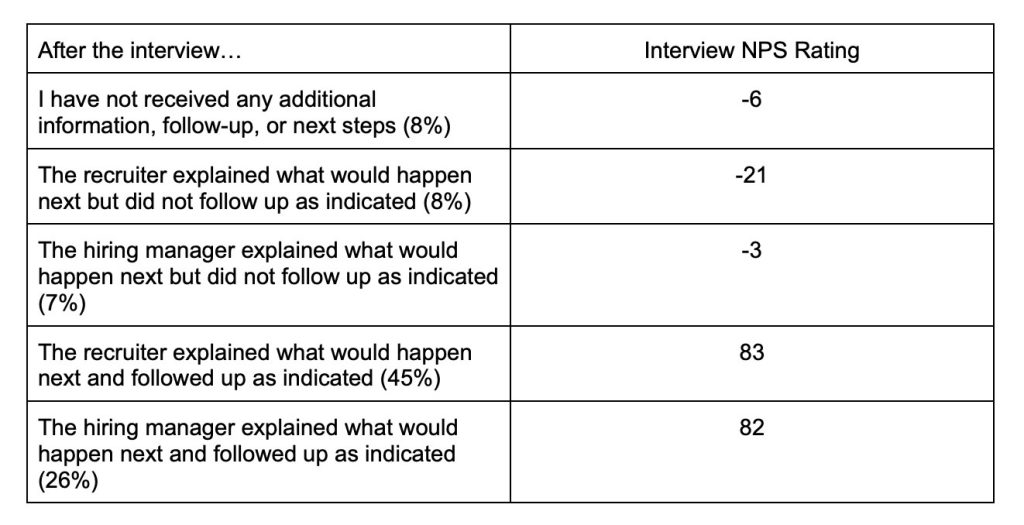I may have salvaged the second strongest potential hire because of my follow-up. It certainly wasn’t how I managed the interview process, that’s for sure.
Many years ago I managed a team of product marketers at a software company. We were hiring, and so I worked with one of our recruiters to review the applications and get to a manageable group to screen and interview. When we got to the final set of candidates, the recruiter helped me schedule the final interviews over two days.
We had a pretty tight schedule of interviews with me, my team, and my boss that entire first day. That morning I was frenetically busy with project work, and when the front desk called me at 11:20 am, I didn’t have a clue why. Not even my calendar reminders helped me.
The front desk person said, “Hi Kevin. You know your 11 am interview has been here waiting in the lobby.”
I didn’t get it at first. “What time is it?” Was all I could articulate.
“It’s 11:20.”
Then it hit me and I scrambled. Not only did I skew this interview, my lateness skewed the entire day, disrupting the candidates’ and my team members’ day. Not to mention my boss’s day. I was overly apologetic, and the candidates seemed gracious enough about the situation. But I was distracted the entire time and the candidates knew it. That didn’t bode for quality interviewing.
The second day of interviews were on time, but the better two candidates were from the first day. I told all the candidates that I would be in touch within two weeks, and I made damn sure I did just that.
The strongest candidate of the two from the first day of interviewing declined my offer. Said we were too unorganized, but appreciated my feedback and that I followed up when I said I followed up. The second strongest candidate accepted my offer, but also pointed out we were too unorganized, but appreciated my feedback and that I followed up when I said I followed up.
One of two ain’t bad when you’re huffing and puffing to get the work done and stumbling along the way.
So, what does the latest CandE Benchmark Research say? Depending on how the hiring managers and recruiters say and do, it’s a pretty dramatic difference in interview stage NPS ratings (see table below).
When candidates said they received no additional information, follow-up, or next steps after the interview, their interview stage NPS rating is -6. That’s -6 on a +100 and -100 scale.
But when the recruiter explained what would happen next and followed up as indicated, the rating jumped to 83, and when hiring managers did it, the rating jumped to 82. Granted, 74% of those received an offer compared to only 6% who did when there was no additional information, follow-up, or next steps after the interview.

And it’s just as bad, if not worse, when recruiters and hiring managers alike explained what would happen next but did not follow up as they indicated they would.
Also, based on my personal experience above, the number one negative reason candidates withdraw from the recruiting process is when their time is disrespected, especially during the screening and interview process. Regardless if they get the offer or not, explain what will happen next and give them consistent closure.
Fortunately most of the candidate finalists in our research were followed up with as indicated by both recruiters and hiring managers, and that’s always a proven practice in the real world and validated by our CandE Benchmark Research. Besides ultimately leading to more positive hiring experiences, for those still not hired, they’ll be more likely to refer and be a brand advocate. The benefits are greater when feedback is given to the finalists as well.
I learned many valuable lessons over the years, but none as important as this one: do what you say you’ll do, not what you don’t.
